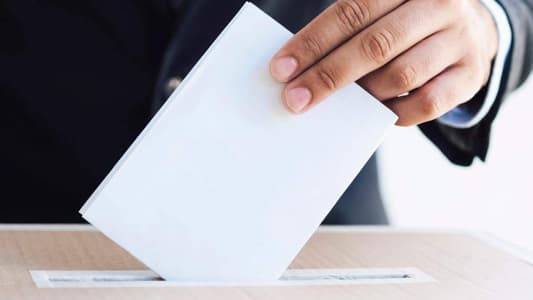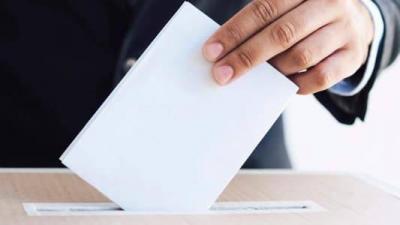Lebanese Minister of Interior Bassam Al-Mawlawi is facing a challenge in conducting municipal and elective elections as scheduled for May. He appears determined to manage the electoral process despite the difficulties ahead. Experts, however, believe that Al-Mawlawi is "swimming against the current" given the administrative, logistical, financial, and security hurdles he faces—issues that previously led to the postponement of elections last year and are now seemingly more complicated. The state, which held parliamentary elections a year ago, struggled to secure necessary resources, resorting to international aid that is more difficult to obtain now.
The minister regularly reaffirms his commitment to conducting the municipal and elective elections on their planned date, emphasizing adherence to the law and the right for all Lebanese citizens to have local councils that serve them in social and developmental roles. He mentioned that 110 out of Lebanon's municipalities are dissolved, and preparations within the Ministry of Interior are complete. The electoral lists will be announced in February, and he is adamant about fulfilling constitutional and legal obligations on time, stating he will not request a postponement as the elections are essential for revitalizing local governance, and many citizens await this process, which he believes will enhance security.
The elections face major challenges, primarily financial ones that are critical for this endeavor, alongside security concerns. A responsible source in the Interior Ministry revealed to “Asharq Al-Awsat” that Al-Mawlawi had sent a letter to the Cabinet’s General Secretariat outlining the financial cost of the elections, estimated at about 9 billion Lebanese pounds (approximately 215,000 dollars at the current Sayrafa exchange rate). The source stressed that cooperation between the government and Parliament is needed as funding requires legislative sessions.
The source indicated that "security should not be a reason to delay the elections" and that raising such concerns close to the date is unnecessary since security is stable and conditions allow for the elections to proceed, provided the government is committed to holding the election on time. However, Al-Mawlawi’s proactive stance is met with skepticism regarding the feasibility of meeting the timeline. Electoral expert Kamal Fghali believes "the fate of municipal elections hinges on securing adequate financing." He remarked that "the state has yet to allocate the necessary budget" and recalled that municipalities previously provided electricity for polling stations and related setups during parliamentary elections, whereas the current costs are higher due to fuel price increases resulting from currency collapse, along with financial constraints faced by local councils. He suggested that if the European Union covers the election expenses, they could be held on schedule but noted that security forces cannot provide fuel for military vehicles or deploy personnel to electoral centers. He expressed concern over “the absence of a rescue plan from the government and whether there is any secret funding for this process.”
Municipal elections are projected to be more costly than parliamentary elections since the former span four weeks and require more preparation, resulting in financial burdens three times greater. Legal and constitutional expert Dr. Said Malek pointed out that "municipal and elective elections face logistical and legal obstacles." He indicated that the logistical hurdle involves securing financial appropriations since the 2022 budget lacks funding for elections, and the 2023 budget is nonexistent. He indicated to “Asharq Al-Awsat” that the government must seek Parliament's approval of a law to secure financial appropriations. He fears that “a legislative session may not be convened due to significant political opposition to holding one before electing a president.”
Malek emphasized that “the best solution for the government is to seek external funding from organizations and international institutions to secure financing, allowing the government to meet and issue decrees for accepting external donations.” The legal obstacles are more complex than securing funds, as Malek believes that the challenge lies in that "municipal elections depend on the same regulations as parliamentary council elections," meaning they must occur under the proportional law which is currently unfeasible. He noted that Articles 11 and 16 of the Municipalities Law from 1977 stipulate that the same rules for parliamentary elections apply to municipal elections, necessitating elections under proportional law. There is a proposal from the "Strong Republic" bloc to amend these articles and revert municipal elections to majoritarian law. The constitutional expert predicts that “the Lebanese Parliament may extend the term of municipalities and elective councils once again due to these legal obstacles.”
Malek is concerned that “Lebanese citizens may reach May 31 without elections or an extension for municipal councils, resulting in those councils becoming caretaker entities under the governance of the district's mayor in each Lebanese district.”




